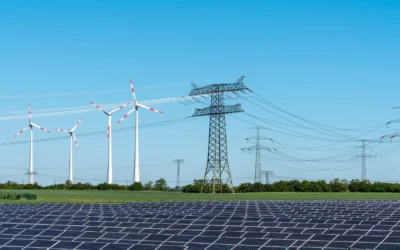The Sharm El-Sheikh Climate Change Conference is currently underway in Egypt, commencing on 6 November 2022 and ending on the 18th. The conference builds on pledges made in the COP26 at Glasgow last year and comprises of a series of events to build on future ambition.
This article summarizes achievements from the COP26, before moving on to explain the structure of the COP27 and elucidating on the happenings at key events.
The Glasgow Climate Pact was the result of the COP26, with nations pledging to make the 2020s a decade of climate action and support. Happenings such as the changed stance on coal, from ‘phasing-out’ to ‘phasing-down’ prevented the conference from being an unmitigated success, but there were a number of positive outcomes, among which were the Global Methane Pledge (signed by over a hundred countries), rules for preventing double counting in emissions trading systems, and doubling adaptation finance.
The COP27 commenced on Sunday, with the opening ceremony including the transferring of the Presidency from the UK’s COP26 President, Alok Sharma, to Egypt’s Minister of Foreign Affairs, Sameh Shoukry. Activities began the following day, with Days 1 and 2 primarily devoted to the World Leaders’ Summit. Political leaders from all around the globe kickstarted the event with speeches preceding the two weeks of negotiations. The UN Secretary General’s speech captured the current situation we are in, deeming it “a highway to climate hell”. The theme for other speeches was similar, with the Prime Minister of Barbados reflecting on the devastating impacts of climate change we have seen in this year alone, both in her region and the floods in Pakistan. The President of Palau also spoke of the havoc climate change wrecks on countries that are the least responsible for causing it, describing how droughts and storms “is tearing us apart limb by limb”. For the right reasons, a lot of the focus was on the leaders of the richer countries reneging on their climate commitments. This was especially true for countries such as the UK, which may try to backslide on goals given the energy and cost of living crisis.
With the tone set for the conference set, Day 3 was centered around Finance. New Zealand’s Foreign Minister announced the allocation of around USD 12 Million to poorer countries to compensate for loss and damages. China’s chief climate negotiator, Xie Zhenhua, said that the country would support a mechanism for compensating poorer countries for loss and damages but that it would not involve contributing cash, citing that China was also a developing country that had suffered from extreme weather events. Most upsettingly, however, the targeted annual USD 100 Billion goal for climate finance and mitigation has not been reached.
Days 4 and 5 centered around Science and Youth, and Decarbonization, respectively. Youth activists were invited to the “Passing the Baton” roundtable where discussions surrounding climate justice were held. Day 4 also revolved around discussing how to protect children and youth- one of the most vulnerable groups when it comes to the effects of climate change. Day 5’s Decarbonization theme was one of the most important themes for this COP. Joe Biden, the U.S. President, made a speech which, among other things, criticized Russia and promised a new commitment for the U.S. under the Global Methane Pledge, by reducing U.S. methane emissions by 87% by 2030.
Saturday, Day 6 of the COP27, was centered around “Adaptation; Agriculture and Food Systems”. The findings of the Koronivia Joint Work on Agriculture (KJWA) were accepted. This program officially acknowledges the unique role of agriculture in tackling climate change. However, no concrete outcomes were confirmed for implementation. At the end of the first week, it seems that a lot of consensuses have been left over for the final week.
Sunday, Day 7, was a rest day at the COP27, with the final week beginning on Monday with the overarching themes being Gender and Water. This included the launch of the initiative, “African Women’s Climate Adaptive Priorities (AWCAP)”.
Overall, surrounding this COP is the overarching fear that richer countries will backtrack on their climate commitments to limiting warming to 1.5 degrees Celsius and that the USD 100 Billion per year target will not be fulfilled. The rest of the week is structured as follows:

Contact Sales:
Europe
+49-89-12250950
Americas
+1 408-604-0522
Japan
+81-80-7808-1378
GCC/Rest of APAC
+971-58-1602441
More about our:
Services
Recent Insights
Exploring the European EVCI Services Market Key Players and Emerging Trends
There has been a significant surge in the development of EVCI due to the widespread adoption of EVs in Europe. By 2030, it is expected that Europe...
Nordics EVCI Market Comparison: Quarterly Growth and Market Dynamics – 2024
This infographic examines the ambitious policies and regional targets that are propelling the growth of Electric Vehicle Charging Infrastructure...
Europe’s Switch to Sustainable Power: The Rise of Solid-Insulated Switchgear
As Europe intensifies its shift towards sustainable energy solutions, Solid Insulated Switchgear (SIS) is emerging as a key technology in the...


